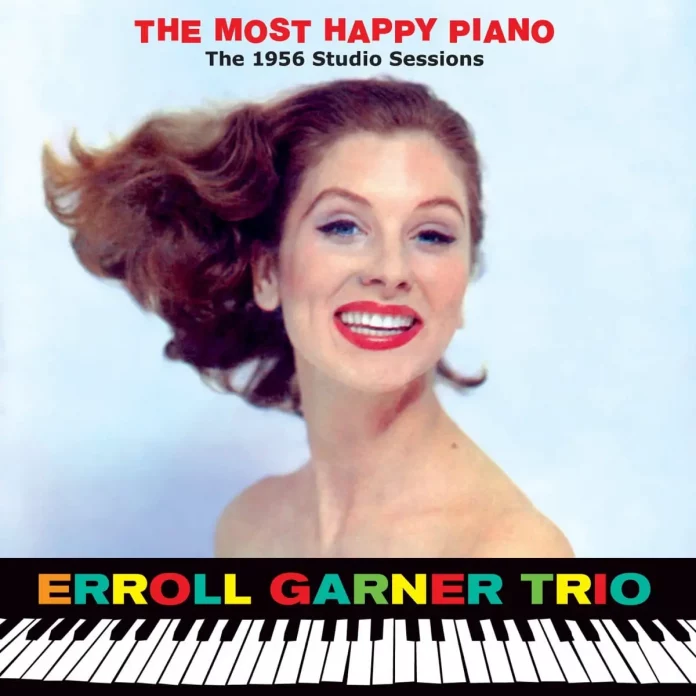One of the most gifted of jazz inventors, Garner was able to bring a whole new perspective to popular song, transforming themes from one dimensional to two dimensional. During his career he reassembled virtually the whole of Broadway before quietly leaving the planet.
His amazing light-fingered legacy remains with us and these days it is rarely lauded as it should be. It was so fortunate that The Complete Concert By The Sea was captured, for it is his greatest recording (Columbia Legacy 88875120842). That was 19 September 1955, roughly a year before the similarly miraculous improvisations that form the core of this set. (The seven bonus tracks – the (2) tracks – were done in 1951-53.)
Two Columbia albums – The Most Happy Piano and He’s Here! He’s Gone! He’s Garner – are combined here. The menu is the same in both, packed with surprise openings. (It’s doubtful if the trio knew what they were to play until after a few bars of each intro.) But off he goes, dragging them off in his whirlwind – goodness knows how many years his peak lasted, but he was certainly still riding it high with these sessions. The energy is amazing.
I’ll never forget standing in the wings at the conclusion of his Liverpool concert. His agent, Martha Glaser stood, her arms spread wide, holding a huge, white bath towel and the little man, barely able to see for the sweat in his eyes, plunged offstage and dived blindly into the towel with a figurative huge splash.
The seven bonus tracks (done in 1951-53) begin with a gentle Once In A While, which is quieter but in no way lets up on inventiveness or, most importantly, Garner’s perfect understanding of swing and timing. These early tracks are slightly less well recorded and are typified by the creative Robbins Nest, which seems to move as far away from the original as possible; the fleet improvising makes Old Man River roll like you never heard before. The accompaniment on the bonus tracks has less volume than on the gratifying mature later tracks. These benefit from disregard of the three-minute form. Did you ever hear a longer intro than the one into All God’s Chillun? The pianist couldn’t have chosen better than Hall and Powell and the trio runs on instinct.
Discography
CD1: (1) Rose Room; But Not For Me; My Silent Love; Full Moon And Empty Arms; Some Of These Days; Time On My Hands; Girl Of My Dreams; Alexander’s Ragtime Band; If It’s The Last Thing I Do; After I Say I’m Sorry; I Got It Bad; Old Man River; Them There Eyes; The Man I Love (71.16)
CD2: Moonglow; All God’s Chillun Got Rhythm; Crème De Menthe; Humoresque; My Lonely Heart; Mambo 207; The Way Back Blues; Passing Through; (2) Once In A While; Dancing Tambourine; Sophisticated Lady; Robbins Nest; How High The Moon; Fancy; Groovy Day (67.52)
(1) Garner (p); Al Hall (b); Specs Powell (d). NYC, 7 June and 11 September 1956.
(2) Collectively: Garner (p); Wyatt Ruther, John Simmons (b); J C Heard, Shadow Wilson (d). LA and NYC, 1951-53.
Essential Jazz Classics EJC 55781
















